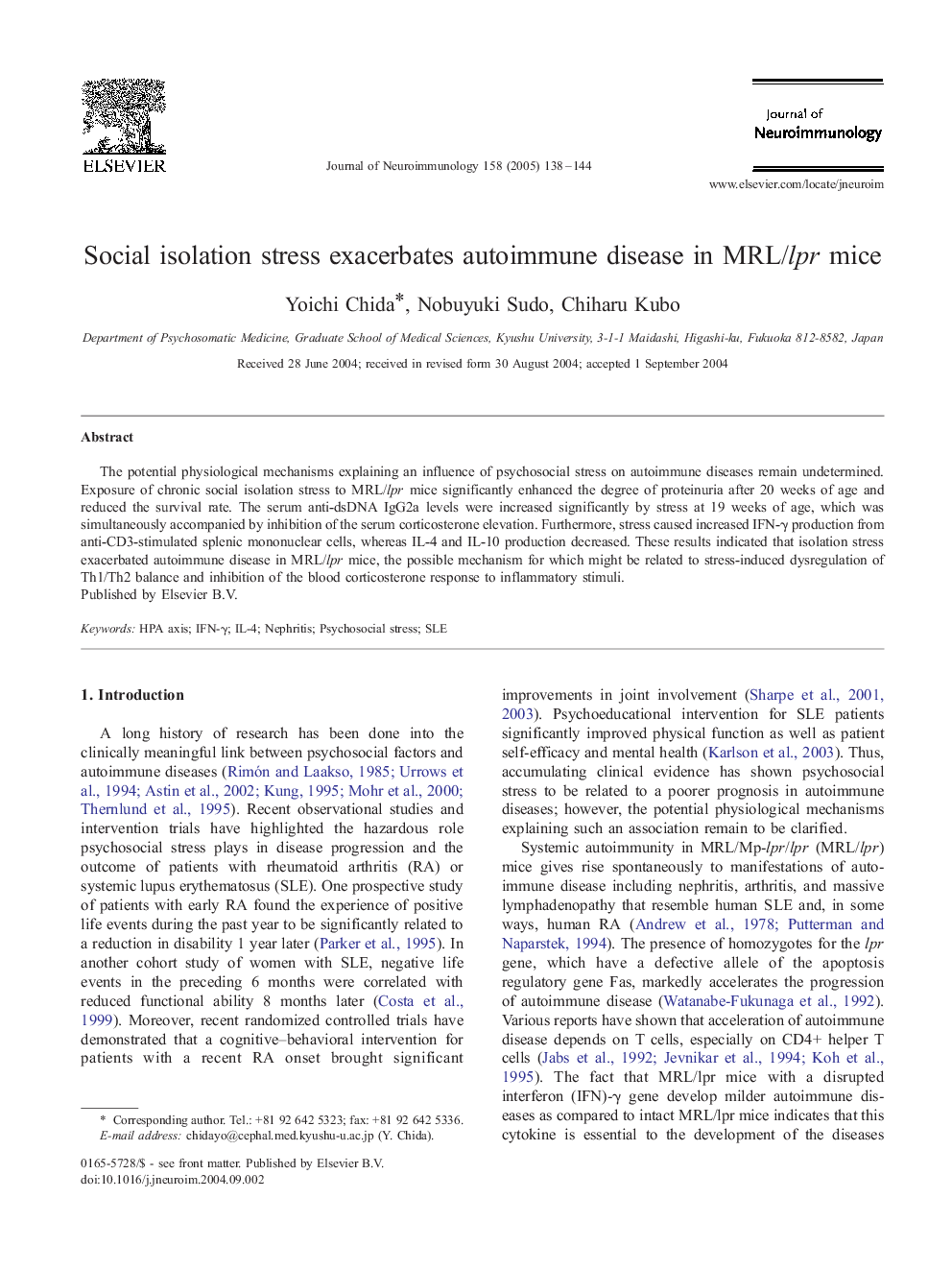| Article ID | Journal | Published Year | Pages | File Type |
|---|---|---|---|---|
| 9194827 | Journal of Neuroimmunology | 2005 | 7 Pages |
Abstract
The potential physiological mechanisms explaining an influence of psychosocial stress on autoimmune diseases remain undetermined. Exposure of chronic social isolation stress to MRL/lpr mice significantly enhanced the degree of proteinuria after 20 weeks of age and reduced the survival rate. The serum anti-dsDNA IgG2a levels were increased significantly by stress at 19 weeks of age, which was simultaneously accompanied by inhibition of the serum corticosterone elevation. Furthermore, stress caused increased IFN-γ production from anti-CD3-stimulated splenic mononuclear cells, whereas IL-4 and IL-10 production decreased. These results indicated that isolation stress exacerbated autoimmune disease in MRL/lpr mice, the possible mechanism for which might be related to stress-induced dysregulation of Th1/Th2 balance and inhibition of the blood corticosterone response to inflammatory stimuli.
Related Topics
Life Sciences
Immunology and Microbiology
Immunology
Authors
Yoichi Chida, Nobuyuki Sudo, Chiharu Kubo,
